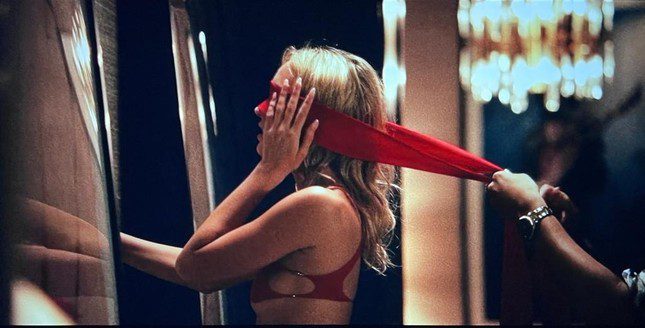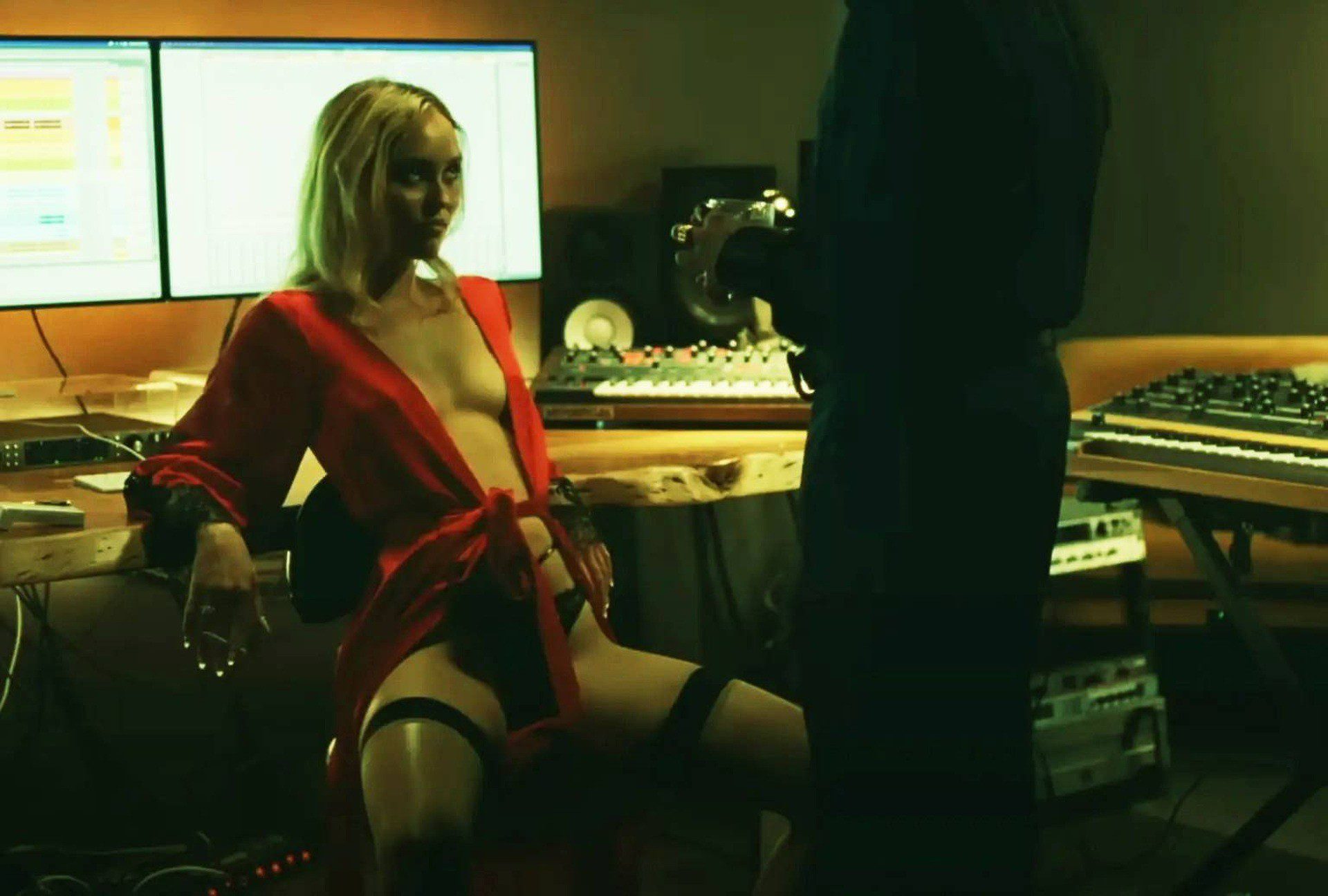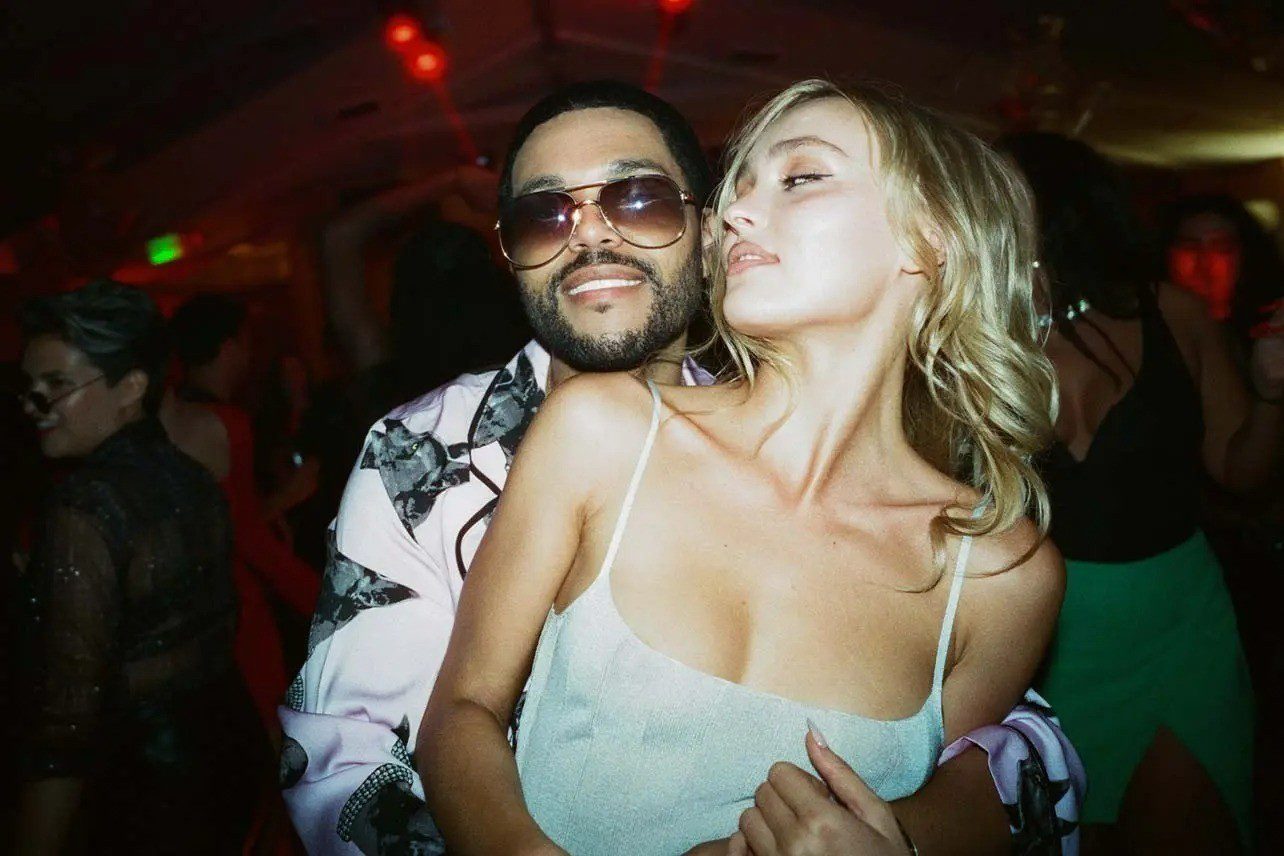The Idol made its debut at the Cannes Film Festival. During the premiere of the first two episodes, the series faced significant backlash due to its provocative content. The production team had to replace the director to avoid a wave of negative reactions, according to the New York Times.
After the controversial launch, the primary focus of criticism was directed at Jennie. Many opinions suggested that the female singer’s portrayal was overly reliant on suggestive imagery, with scenes being labeled as inappropriate.
However, when the subsequent episodes aired, viewers not only “supported Jennie,” but The Idol also presented many other issues related to the main characters, including plot development and camera angles.
Viewers are often bemused because The Idol resembles a provocative film
The mini-series The Idol consists of 6 episodes, each lasting approximately 50 minutes. The film follows the main character Jocelyn (played by Lily-Rose Depp) as she struggles with the pressures of fame in the entertainment industry.
The show features not only scenes of violence and bloodshed but also the profound struggles of the main character through scenes depicting intense emotional turmoil, described by director and writer Sam Levinson as “painful yet artistic,” making it difficult for viewers to look away.
The narrative revolves around the character’s emotional breakdown, portrayed through challenging intimate scenes.
Throughout the film, Lily-Rose Depp faced criticism for her continuous portrayal of vulnerability. Her goal to become a pop music icon always seemed overshadowed by the overwhelming pressures surrounding her.
Until encountering the character Tedros, played by The Weeknd, the relationship between the two characters is described by The Guardian as “entangled in a way that distorts their personalities” through various sexual scenes.
The producers aimed for the intimate scenes in the film to evoke a sense of discomfort rather than arousal. Despite this, the frequency of such scenes has increasingly made viewers feel overwhelmed.
Following Lily-Rose Depp, The Weeknd also faced criticism for his character’s often crude dialogue. The discomfort in his character made viewers “have to look at the male singer through a different lens.”
After being criticized, The Weeknd remarked that he was “very concerned.” “Tedros is essentially a manipulative character. He is always looking for ways to control Jocelyn, even when he has nothing in his hands. We want viewers to feel discomfort rather than empathy for the character,” The Weeknd stated.
While it’s important for viewers to feel discomfort, it’s not necessarily for the characters but rather for themselves.
Challenging the notion of provocative entertainment
According to The Guardian, it is quite difficult to define what constitutes publicly released films with provocative content, but during a court hearing, Supreme Court Justice Potter Stewart famously said: “I know it when I see it.”
Generally, “provocative entertainment” refers to works with content that is sensational, shocking, and lacks artistic or intellectual value. The term “provocative entertainment” has been around for about 20 years, especially prominent in the early 2000s.
After the commercial success of Saw, film studios rushed to produce films like Hostel 1 and 2, which included graphic scenes of torture involving vulnerable guests. The Human Centipede features characters subjected to horrific surgical procedures, making the audience squirm. Meanwhile, A Serbian Film depicts a man who is drugged and tortured by a director.
One of the issues with “provocative entertainment” is not just excessive violence but also the dehumanization of individuals. The Idol is one of the works where the director and writer exhibit disdain for their characters while demanding that viewers become emotionally invested in their devastating experiences.
With the program’s scenes continuously saturated in dark themes, it highlights an industry that is often harsh and unyielding, rather than glorifying the struggles of pop singers like others.
Every moment of horror and pain is seen through the lens of “being human.” Similar to The Human Centipede which drunkenly portrays surgical procedures and scientific aftermaths, The Idol seeks to depict failures, heartache, and the moments of desperation that Jo must face.
“Even with Depp’s notable performance, the moments are utterly painful. Depp’s high cheekbones are highlighted, making the character appear frail and pale. Every nuance, including the intimacy, mental health struggles… is put on display,” The Guardian commented.
Moreover, when the character reaches a breaking point, the program doesn’t offer any profound insight into the struggles of a pop star; rather, it projects a superficial image of success. “The most obvious flaw of The Idol is its essence of ‘provocative entertainment,’ with nothing more to offer,” the British newspaper commented.
Despite the criticism, Sam Levinson – the director of The Idol – expressed confidence in the series, stating that there was nothing to address regarding the criticisms. “My team and I understand that we created a series that sparks controversy yet doesn’t lack value,” he said.
“I just believe that we created the most impactful series of the season. We are living in a world where there is much provocative content, especially in the pop music industry. My film is entirely different in addressing these issues,” the director stated.
Lead actress Lily-Rose Depp also spoke out regarding her role. “Jocelyn is a sexy pop star, encapsulating every aspect of fame. The intense scenes reflect her mental state and the emotional struggles that are integral to her character,” the actress shared.
According to Page Six, The Weeknd has no intention of making a sequel to the series amid the backlash. However, HBO’s head Casey Bloys remains optimistic about the mini-series’ future.
“Regardless of whether it’s good or bad, we’re all talking about The Idol,” a source from HBO remarked.
























